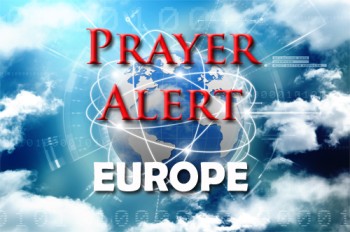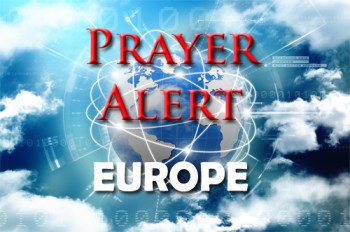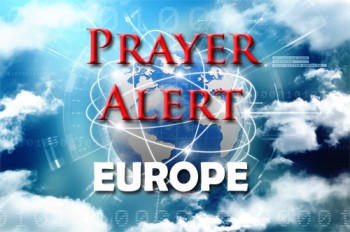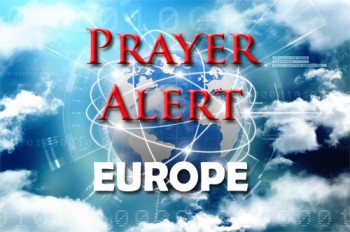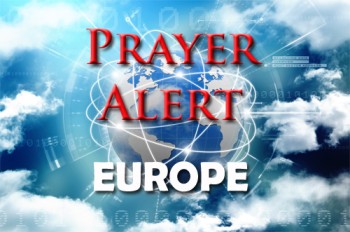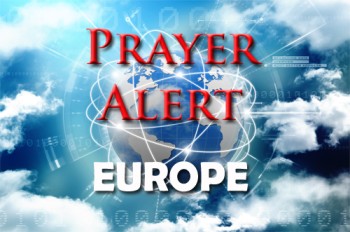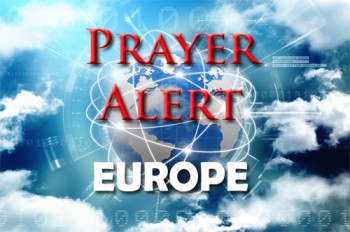Displaying items by tag: Europe
Ukraine: trade land for peace?
At a meeting in Norway where NATO alliance members were discussing how the 18-month-old war might be brought to an end, Stian Jenssen, chief of staff to NATO’s secretary general, said, ‘I think a solution could be for Ukraine to give up territory, and get NATO membership in return.’ Jenssen noted that discussions about Ukraine’s postwar status were continuing in diplomatic circles. Jenssen was careful to stress that he was simply airing an idea and that ‘it must be up to Ukraine to decide when and on what terms they want to negotiate’, reflecting NATO’s position that no peace settlement should be agreed without Ukraine’s assent. Kyiv said a land-for-NATO deal would reward Russian aggression.
Lithuania: change needed
Freedom has brought good progress in Lithuania. Doors for the gospel remain open. However, freedom has also brought dangers like greed for material goods, selfish pleasure-seeking, and a belief that traditional morals have no value. Substance abuse, suicide, and trafficking of women for prostitution all damage the social foundations. Spiritual transformation must accompany economic growth. Lithuania was the last European nation to be Christianised.
Russia: prayer needs
The majority of the world looks on with disbelief at Russia’s 17 months of ‘battle for justice’, and Russians are tired. Youths are fleeing, the economy falters, loved ones risk their lives, and they are tired of the lack of peace. Many are familiar with Orthodox Christianity, but they are non-practising. They are not familiar with the true stability and peace only found in Jesus. 17.7 million Russians don’t know who Jesus is. In their deep war-torn weariness, Russia’s 143 million people need Jesus to be their ultimate place of rest and their source of true peace. Putin’s anti-terrorism laws ban Christians from preaching outside a church building. Evangelism in homes or online is prohibited. Pastors and missionaries trained outside Russia must attend additional state-approved education. Bible teachers are needed to provide sound doctrine. Only God, manifested through the Body of Christ, can bring the hope and deliverance this nation seeks.
Ukraine: prayer needs
The devastation wrought by Russia’s invasion is heartbreaking, and the atrocities committed are galling. Millions of Ukrainians have been displaced. Tens of thousands have been killed. When the conflict ends, rebuilding will take years, or even decades. Even more complicated will be the healing of trauma experienced and, hopefully, an eventual reconciliation with its neighbour. Pray for the intervention of the God who makes wars cease to the ends of the earth and who breaks the bow and shatters the spear (Psalm 46:9). Pray Psalm 10:17-18 over Ukraine – that the Lord will hear the desire of the afflicted, encourage them, and listen to their cries. Pray for wisdom from above, and divine fortitude for Ukraine’s leaders and its people. Ukraine’s rich Christian heritage began in the Slavic world in Kyiv 1,000 years ago. Churches suffered greatly in the Soviet era. Next there was hostility from the Orthodox Church for other expressions of Christianity. Evangelicals have emerged from many years of persecution with larger numbers and stronger faith.
Ukraine: War coming back to Russia
Ukraine's President Volodymyr Zelensky has warned war is coming back to Russia after drone attacks on the capital Moscow. Mr Zelensky said attacks on Russian territory were an ‘inevitable, natural and absolutely fair process’ of the war between the two countries. Russia's defence ministry said three Ukrainian drones were downed on Sunday, with two crashing into offices. Vnukovo Airport, near Moscow, was briefly shut. In a video address Mr Zelensky said that Ukraine was getting stronger. ‘Today is the 522nd day of the so-called Special Military Operation, which the Russian leadership thought would last a couple of weeks,’ he said. "Gradually, the war is returning to Russian territory - to its symbolic centres and military bases; an inevitable, natural and absolutely fair process.’ Former Russian President Dmitry Medvedev said again on the 30th July that Moscow would have to use a nuclear weapon if Kyiv's ongoing counter-offensive was a success.
Ukraine: Female front line fighters
Ukrainian women are signing up in growing numbers to defend their country. There are 60,000 females fighting Russia - amidst strong Ukrainian sexist attitudes. 42,000+ have military positions with 5,000 on the front line. Andriana is a Ukrainian special unit sergeant preparing to return to the front line. Many Russian texts and videos report Andriana’s ‘death’ in graphic detail. ‘They published that I died with no legs or hands.’ says Andriana. ‘They are propaganda professionals.’ Female troops also face battles of sexist attitudes within their own ranks. Ukrainian society has a strong opinion that girls join the army to find a husband. Andriana says women have also told her about cases of physical abuse. We can't imagine the scale as few female soldiers will discuss this, so Andriana co-founded Ukrainian Women Veterans Movement, which campaigns for equal rights for female military personnel, and for reforming Ukrainian army legislation to bring it in line with NATO's.
Russia: warnings and dangers
After Ukraine’s recent drone attacks, there have been warnings of tough retaliatory measures. Putin’s closest ally Dmitry Medvedev, of Russia's Security Council, said Moscow must ‘choose unconventional targets for our strikes - not just storage facilities, energy hubs and oil bases.’ He also warned of a global conflict breaking out as nuclear tensions rise and concerns about climate change intensify: ‘The world is sick, and quite probably on the verge of a new world war.’ Officials in Moscow have repeatedly warned that the world faces the most dangerous decade since World War 2. At NATO’s arms control conference recently, the USA said, ‘We have watched and worried that Putin would use his non-strategic tactical nuclear weapon for a managed risk escalation. It’s critical that we remain watchful.’ NATO’s secretary general said Putin’s plan to place tactical nuclear weapons in Belarus was part of a years-long pattern of ‘dangerous, irresponsible nuclear rhetoric’ which intensified with the ‘brutalisation of Ukraine’. See
Europe: heatwave relief in sight
European countries suffering under sizzling heat waves for weeks can hope for respite as ‘subtle changes in the jet stream’ are expected to start to bring temperatures down by 2 August. Until then we can continue to pray for the safety of firefighters who are running towards the flames as others are running away. Ask God to comfort those whose homes and businesses have been destroyed. Pray for help and wisdom for those who have to rebuild their livelihoods after the fires are extinguished. May God be with people mourning those killed by fire, and may He help those who continue struggling with health issues worsened by heat and smoke.
Russia: facts for informed intercession
We can pray into Putin’s situation as he tries to crack down on the increasing resistance by his ex-supporters, the nationalists. Their abandoning him falls in line with the growing war-weariness across Russia. Russian ultranationalist Igor Girkin was arrested after he criticised Vladimir Putin’s handling of the Ukraine war, calling for a transfer of power. He said online that the Russian army is no longer loyal to Putin; he expects the Ukrainian counteroffensive to break the Russian front. He also promised to form an opposition party of ‘angry patriots’ to save Russia from collapse. There are other nationalists and dissenters also criticising Putin’s handling of the war. Putin still depends on Wagner’s generals, which means a weakened Russian military and more mistrust. China supported Putin’s invasion of Ukraine. Western sanctions gave Putin economic tensions. Now selling the Chinese yuan indicates his dependence on Beijing.
Putin ‘clearly under pressure’, says UK spy chief
The head of Britain’s MI6 foreign spy service, Richard Moore, has said that Putin is clearly under pressure in the wake of the Wagner mutiny attempt in June. In his second speech since becoming MI6 chief in 2020, Richard Moore also appealed to Russians appalled by the war in Ukraine to ‘join hands’ with his intelligence service and bring the bloodshed to an end. He said there appeared little prospect of Moscow regaining momentum in Ukraine, adding that he was optimistic about Kyiv’s counter offensive. This follows Russia evacuating thousands of people in the Crimean peninsula after a military training base fire in the Kirovske district. Meanwhile, Ukraine’s port city of Odessa sustained massive Russian airstrikes the day after Putin pulled out of a deal allowing safe grain exports from the region. The Odessa military administration said the attack was very powerful.
